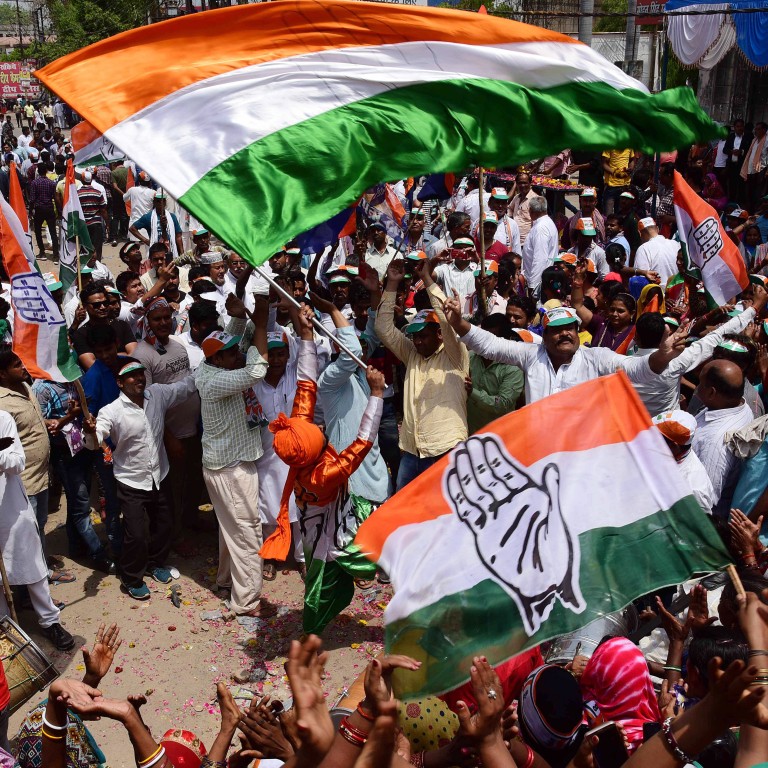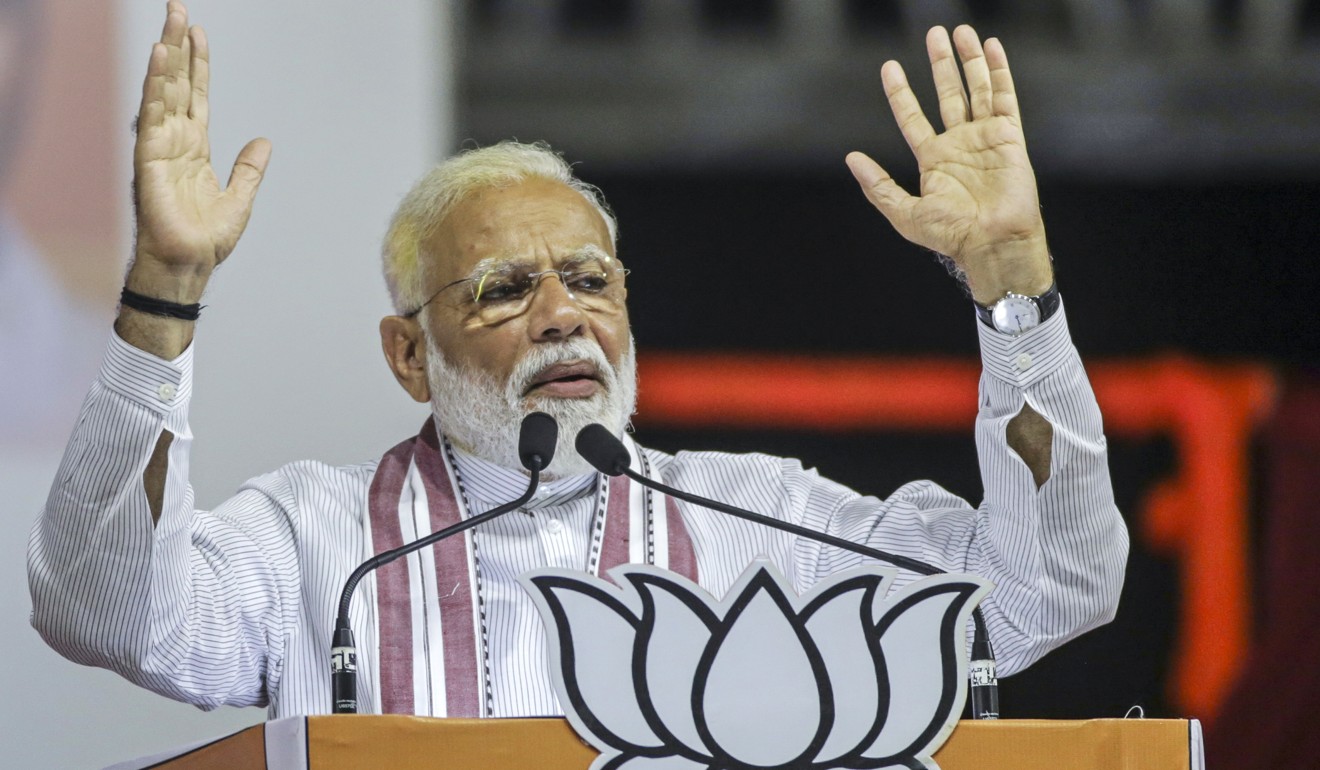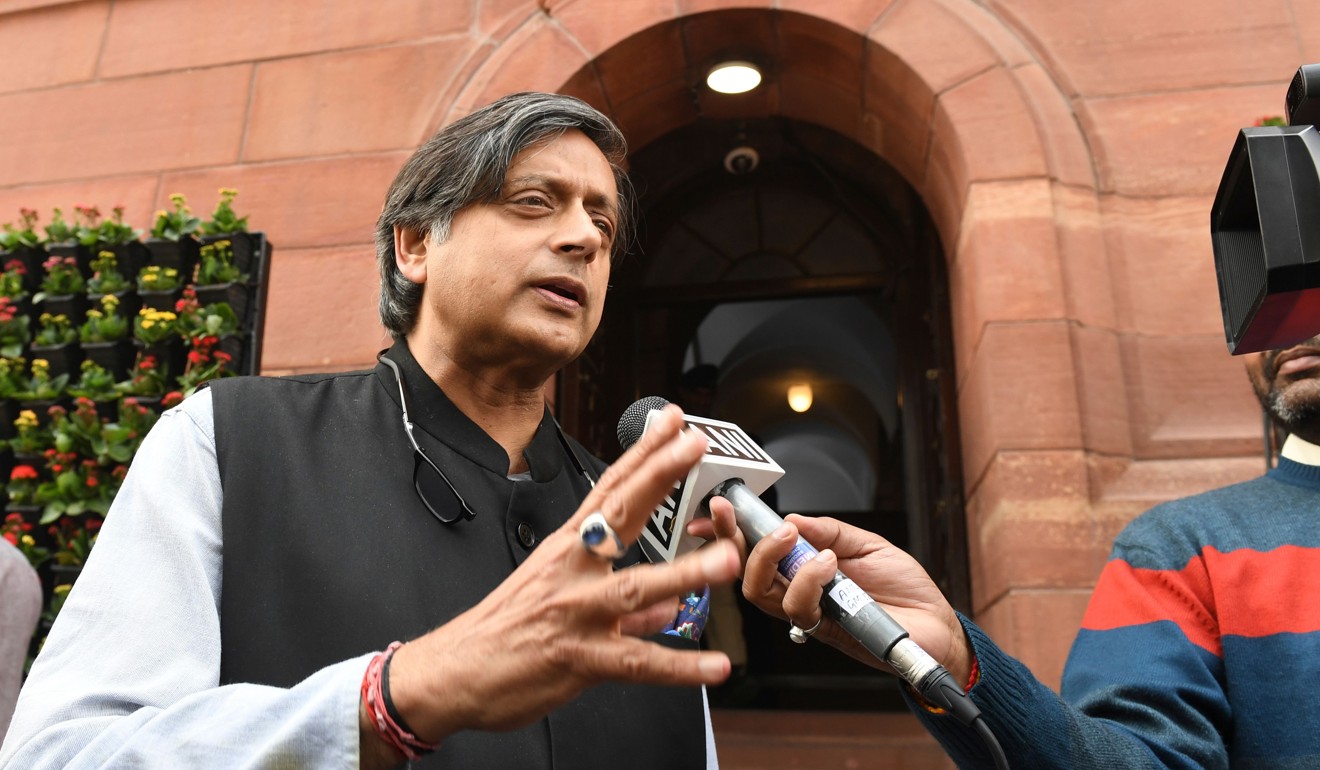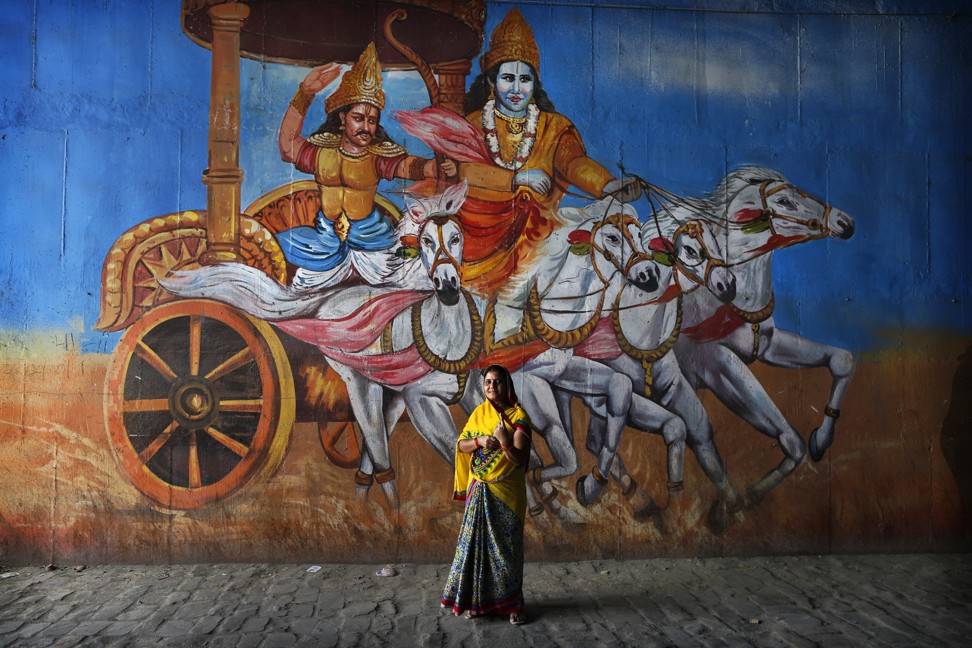
Congress can recover from election drubbing by Modi – if it looks to Kerala: Shashi Tharoor
- The opposition party was relegated to a distant runner-up in the polls as Hindu nationalist messaging swayed voters
- But the Congress-led United Democratic Front, which secured 19 seats in Kerala, is a look at the future of the party and of India, writes Shashi Tharoor
The BJP’s individual performance has stunned many observers – the party has on its own managed to retain a majority in India’s 543-member Lok Sabha (Lower House), securing 303 seats and 37.6 per cent of the national vote, even improving on its performance in 2014 when it won 282 seats. In contrast, my own party, the Indian National Congress, was relegated to a distant runner-up position with 52 seats, a marginal improvement from the 44 we secured in the previous edition.
Narendra Modi and the BJP’s desire to advance Hindu interests won’t help India realise its ambitions
Voter behaviour in these elections has largely surprised most political observers. For instance, there is a well-recognised political dictum that voters tend to cast their ballots keeping in mind their economic self-interest. The key economic issues of the previous five years of BJP rule have been well documented – a slowdown in GDP growth, unemployment levels touching a 45-year high, and widespread agrarian stagnation reducing many of our farmers to such distress that record numbers have committed suicide.
Modi-Xi summit seen as sign of bonhomie but also strategic ambitions of New Delhi
The Modi government’s disastrous management of the economy included the abrupt and impulsive demonetisation of 86 per cent of India’s currency, causing, among other calamities, the shutting down of many thousands of micro, small and medium enterprises that are the engine of India’s economy. Extortionate taxes levied on petrol kept fuel costs artificially high while they were falling around the world. In short, there was plenty to suggest that voters would act on these economic concerns and reject the government under whose watch they took place.
And yet, as the results have extraordinarily made clear, the BJP was able to persuade people to vote their prejudices rather than their economic interests. After all, why would a young man who voted for Modi in 2014, expecting to get a job that he needs, vote for him again in 2019 when he is still unemployed? He does so, apparently, because he is consumed by the fear of enemies within and without, stoked by the BJP campaign, and sees in Modi his protector.
With Narendra Modi’s BJP back in power, can India and Pakistan achieve peace?
Modi came to power in 2014 after articulating a vision of a revived India, a manufacturing giant with hi-tech capabilities that could meet the rising aspirations of a growing young population. Modi promised voters that his administration would be an era of achhe din (good times), marked by “minimum government, maximum governance”, inclusive development, high employment, and rising economic growth and prosperity. Voters believed him in droves.
But in India’s just-completed election, Modi repeated none of this. Instead the BJP projected him as a muscular nationalist with a 56-inch chest – the only man who could keep the country safe from terrorists, infiltrators, “anti-nationals”, and “termites” seeking to hollow out the sturdy structure of the majoritarian Hindu nation he was building. It worked.

The worry for many Indian liberals is that our long-cherished idea of our country as a benign, inclusive state – thriving in its astonishing diversity of religions, ethnicities, languages, and castes – is collapsing. In its place is emerging an India that is less pluralistic, less accepting of difference, less inclusive, and less tolerant than the one we had long celebrated.
The ideal of unity has given way to one of uniformity; patriotism has been redefined as chauvinism; independent institutions are yielding to a dominant government; democracy is being reshaped into one-man rule.
For Modi 2.0, India’s US-China balancing act just got trickier
What does this mean for the opposition Congress?
As expected, since the results confirmed the grim reality of our electoral performance, the wave of obituaries and epitaphs for the Congress has been relentless. But reports of our demise are greatly exaggerated. The Congress is very much alive and well and retains a significant hold on the affections of the public.
That we obtained just under 20 per cent of the national vote hardly makes us an irrelevance in a divided and competitive polity. We are in power in four states (five with Karnataka, where we are in a coalition government) and retain a pan-national presence second to none. Yet, to be reduced to 52 seats in the Lok Sabha is sobering and points to the need for a course correction.

The weeks ahead are likely to be a time for harsh introspection for the Congress party as it begins to take stock of the grim reality offered by its performance on the national stage. But this is not a time for us to sit back and lick our wounds. We have to revive ourselves. We absolutely must recover, because we are the only viable national opposition party in the country and the revival plan must start today.
India election: economic slowdown looms even as Narendra Modi celebrates resounding victory
It is in this context that the performance of the Congress in Kerala offers manna to the party as it figures out how to leave the wilderness it finds itself in. The Congress-led local alliance, the United Democratic Front, swept across the state, with the alliance securing 19 seats, including 15 for INC candidates directly – and in doing so, the Congress managed to better even its recent best of 13 seats which it got in 2009 at the height of the United Progressive Alliance years.
As Kerala has illustrated, if the Congress can get its core messaging right, strategically align ourselves with the interests of the people and the causes that concern them, while simultaneously offering a credible commitment to represent these interests to the best of our capabilities, the people will recognise our ability to fulfil their aspirations.
Kerala has shown the BJP the limits of its appeal to the electorate. It is now up to the rest of India to follow. ■
Shashi Tharoor was former United Nations Under-Secretary-General


